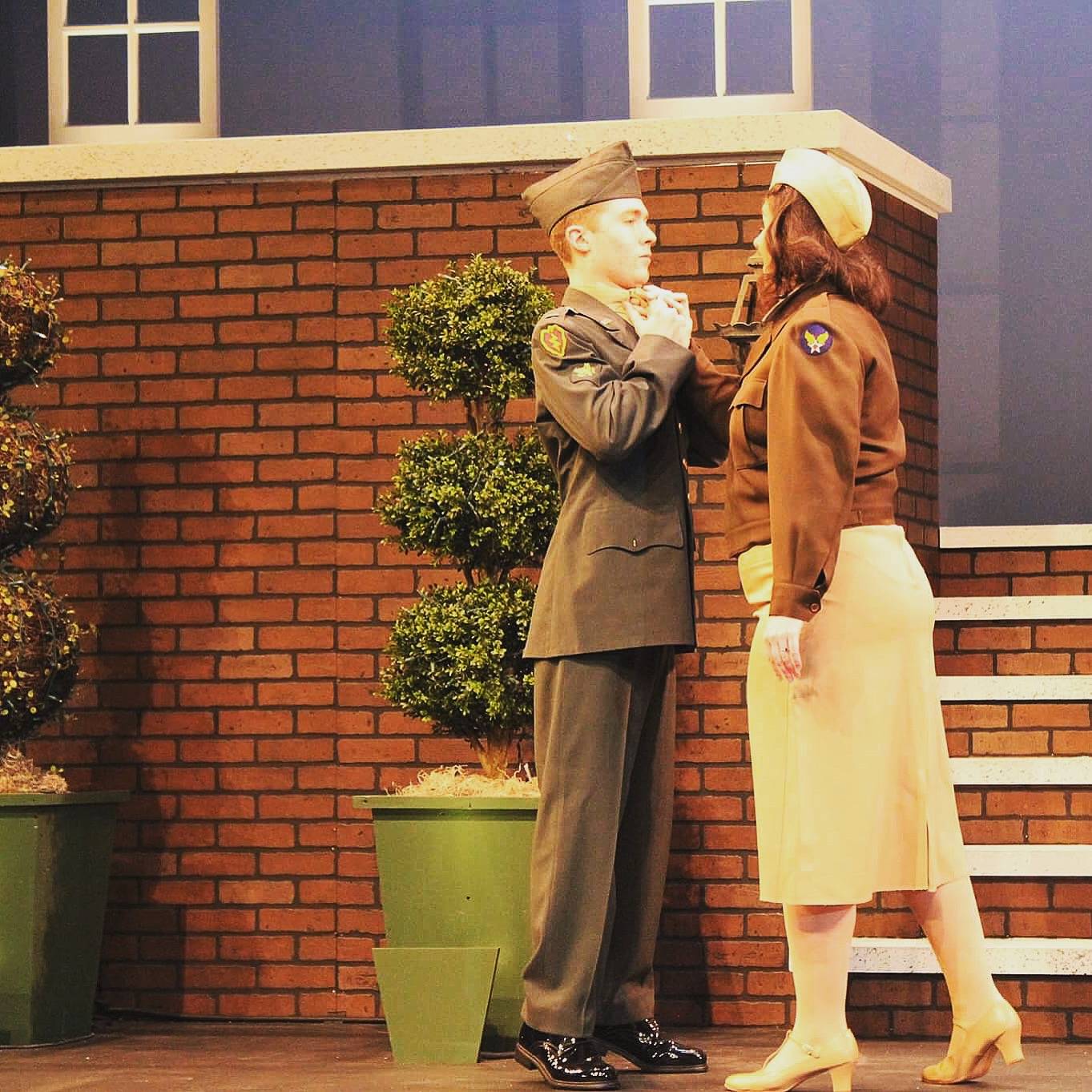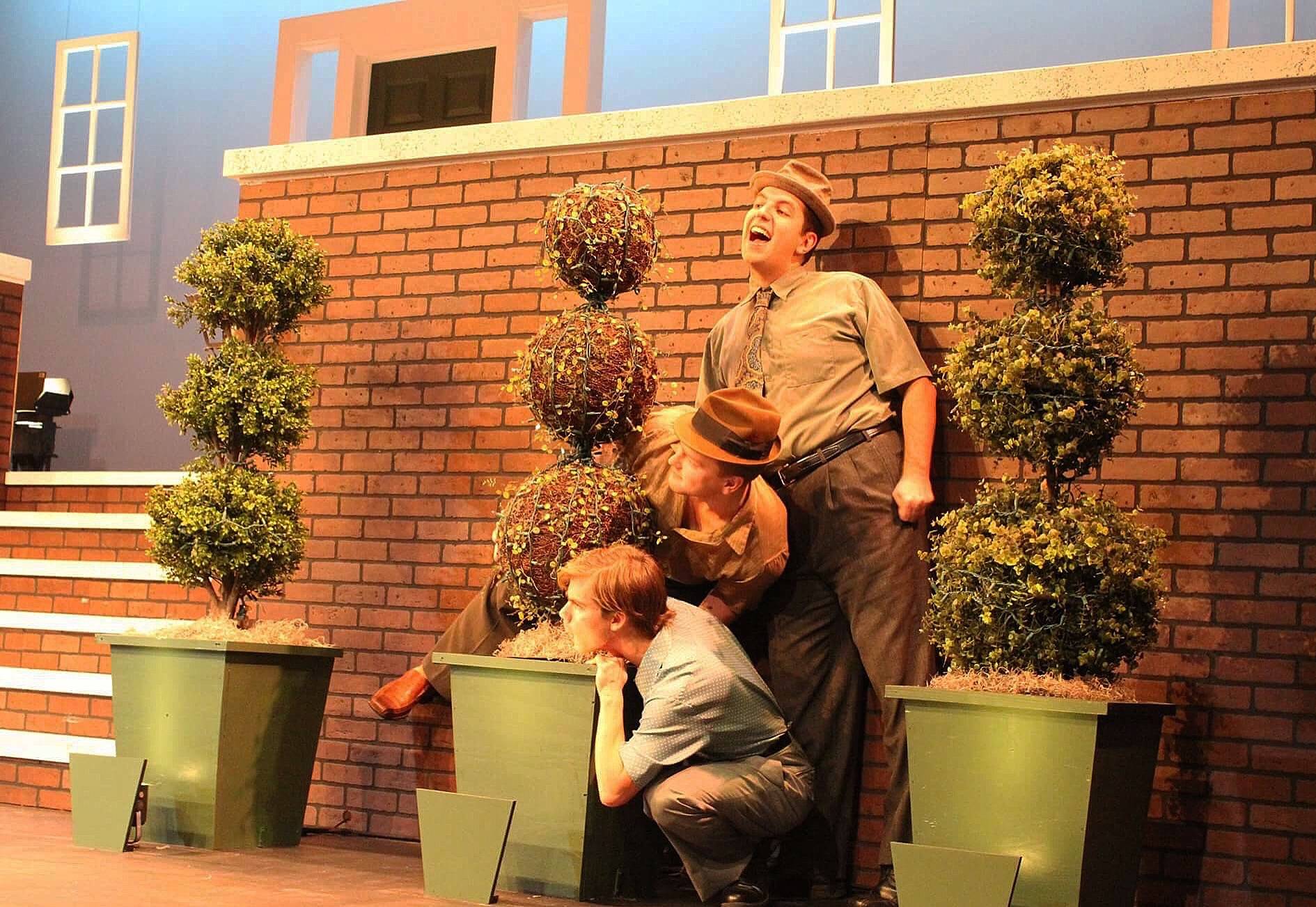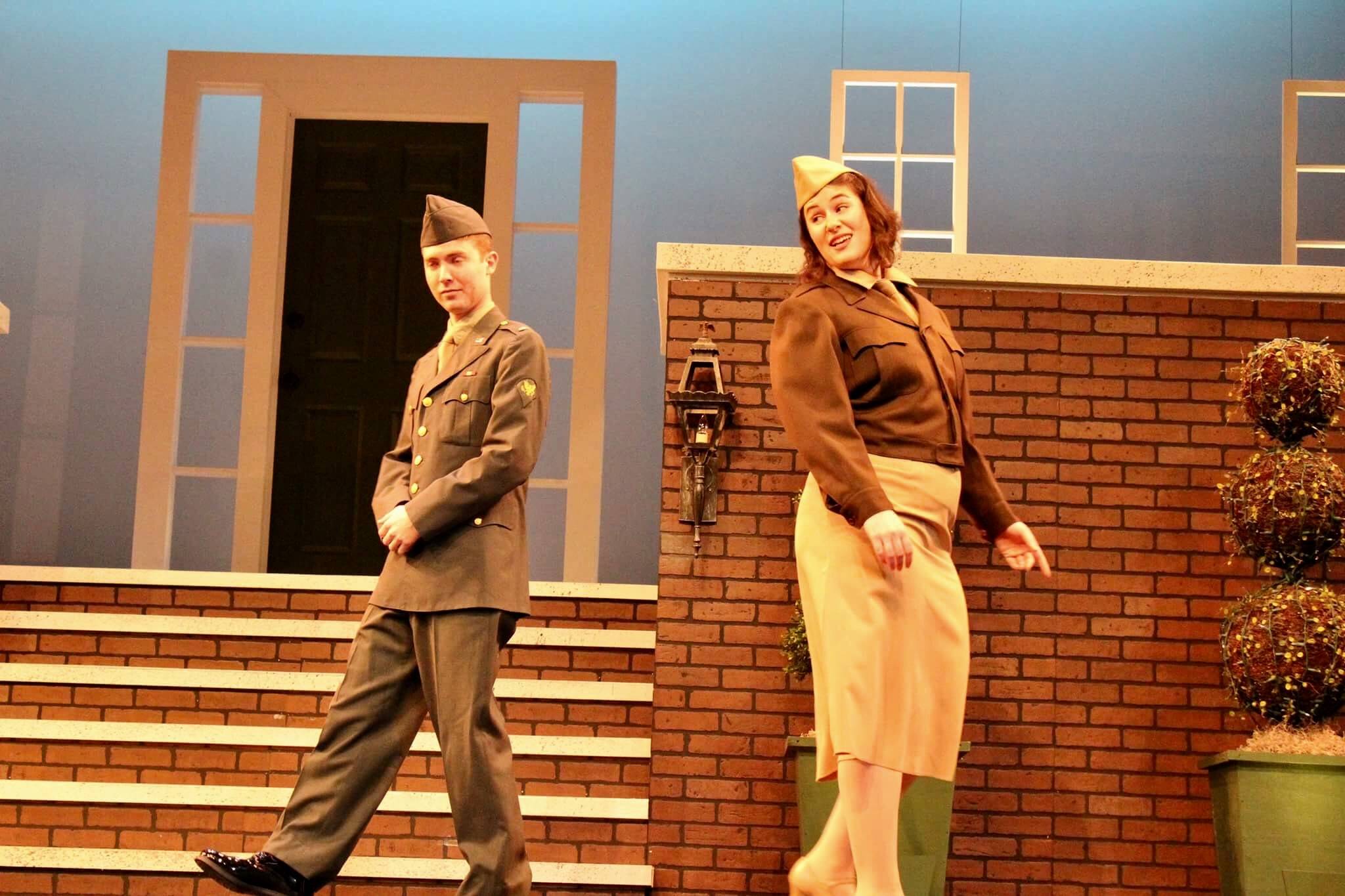Much Ado About Nothing is arguably one of Shakespeare’s best and most well-known comedies, having been produced countless times onstage and even adapted to the screen in two film versions (anyone else remember Keanu Reeves as the scheming Don John?). Yet Parkland Theatre’s current production manages to bring a fresh, fun take to the familiar play.
Director BJ Gailey sets this version in 1946, after the war, and brought some casting changes that invigorate the story of Beatrice and Benedick, Hero and Claudio. Most notably, Benedick is made a female character, played by Abby Gailey, and the switch works surprisingly well, even if it seems a bit modern for its 1940s timeframe. Gailey is completely believable as the lone female in Don Pedro’s entourage, in her military garb matching wits with all who dare engage her. And Shakespeare’s patriarch Leonato becomes matriarch in the character of Leonata, the governor and sole proprietor of the estate where much of the play’s action takes place. Mary Rose Cottingham brings a wonderful groundedness and authenticity to the role, and Leonata holds her own with Don Pedro (Mathew Green) and with Claudio (Quinton Ohlsson), who wishes to marry her daughter Hero (Erin Kaufman). That is, until Don John (David G. Dillman) implements his plot to disgrace Hero and prevent the union.
But of course, being a comedy, this play has a happy ending, and Don John’s schemes ultimately fail thanks to a few bumbling constables who almost literally stumble onto a confession from John’s man Borachio. Among the constables is another casting change, with Mindy Smith portraying Constable Dogberry’s (traditionally male) partner Verges with humorous exasperation.

The entire cast, though, should be commended on the delivery of Shakespeare’s verse; thanks to their excellent intonation and some fantastic facial expressions and gestures, the story is clear and accessible and the humor shines throughout. As the characters implement their plan to play matchmaker between Beatrice and Benedick, for example, they know that Benedick is hiding behind the sparse garden foliage, and they play it up accordingly. Watching Gailey slink around the set, attempting to remain “hidden” while staying close enough to eavesdrop, is hilarious in itself. And of course, the wit-filled banter between Beatrice and Benedick is one of the play’s best features; both Gailey and Chelsea Collier Zych, who portrays Beatrice, bring the right amount of punch without taking it too over-the-top and the energy between them is completely natural and believable. The only slightly jarring moment is during Beatrice’s “if I were a man” speech, when she’s entreating Benedick to challenge Claudio to a duel for dishonoring Hero since she can’t. Delivered to another woman, the lines perhaps lose a bit of their power, though the message of man’s greater social freedom and mobility in 1940s society remains effective and relevant.

The production keeps up a quick pace which gives it great energy — at about two hours exactly (including intermission), there’s no time for tedium here. The single set is the front of a home with an elaborate brick porch, which serves as both Leonata’s residence and the backdrop for various street scenes. The use of lighting as the façade of the house is a neat way to create mood and, overall, the design elements — costumes, set, lights, and sound — all added wonderfully to the atmosphere without distracting from it.

So, the bottom line? If you’re a Shakespeare fan, this production is a fun new take on a classic. If, like me, you’re casually acquainted with Shakespeare and a little intimidated by all that verse, see it anyway — Parkland’s production will keep you in the loop and laughing, which is what a comedy is meant to do.
Much Ado About Nothing plays at the Harold and Jean Miner Theater at Parkland, and remaining performances include November 16-18 at 7:30 p.m., and November 19th at 3 p.m. Ticket information can be found here.
Photos by Logan Green.








